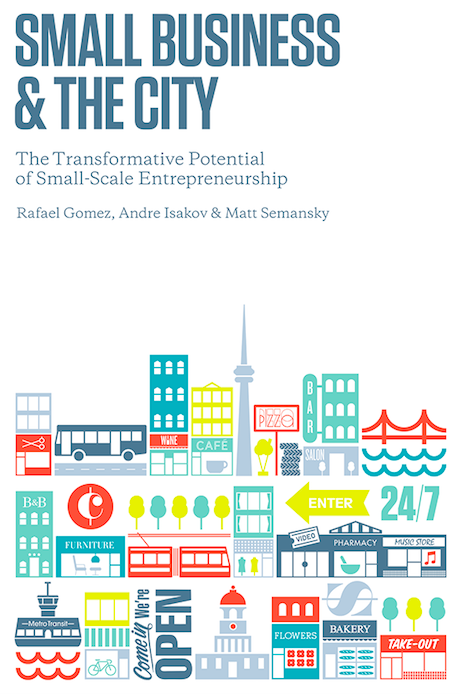
Urban renewal isn’t an easy fight. Just ask the authors of Small Business & The City: The Transformative Potential of Small-Scale Entrepreneurships. Journalist Matt Semansky is one of the three writers behind the new book, which examines how Toronto, Vancouver and Halifax stimulate local businesses and foster growth. A former Coast writer with experience covering urban revitalization, Semansky chatted with us about business improvement associations and Halifax’s growth potential.
How does Halifax compare to the other cities?
It’s a very unique context, and that’s why Halifax was worth including in the book. I find that there’s a real push-pull of big and small, new and old here. In the national context we’re not very big. But in the Atlantic Canadian context, we’re the biggest game in town. I was aware of the faction here that uses words like “world-class” and wants to make it bigger, more international. And the faction that wants to preserve heritage, keep it more of a small-town feel. I wanted to get into some of those aspects. It’s very apples and oranges. Toronto and Vancouver are so much larger, and have such different demographics and history.
Where do you see business improvement associations fitting in that spectrum, between the people who want world-class cities and people who want to preserve heritage?
Each one is a little bit different, to be honest. The North End Business Association, for example, was formed while I was reporting the book. That’s more of a grassroots, from-the-ground-up mentality. It’s very organized around benefitting the community and bringing the community up at large. The Downtown Halifax Business Commission might be a little bit more oriented towards bigger businesses and bigger developers. That’s one of the interesting things about business improvement associations, is that they differ quite widely from each other.
One of the things you highlight is the struggle between the business owners and “unimaginative” government. Is that part of the process, or is Halifax unduly hard on local business?
I took the approach where I was trying to give a voice to the business owners, as opposed to positioning myself as the expert. What I heard from them is some of the bylaws, or enforcements of bylaws, the decisions the municipal government makes sometimes aren’t made in mind for small businesses.
What do you think Halifax still needs to help grow small-scale entrepreneurship?
One of the book’s larger arguments is that small businesses are really large, underrated, and under-appreciated drivers of the economy as a whole. Small businesses collectively employ more people full-time than large corporations. And it seems like for the past however many number of years, the focus has been on suburban development, power centres and getting large corporate entities in place. I think just more of a general policy shift towards supporting small business—whether that’s easing some of these punitive bylaws, whether it’s just consulting more and giving small businesses a bigger voice, investing more in the downtown. A combination of all of these things is what’s going to help small business grow here.


















